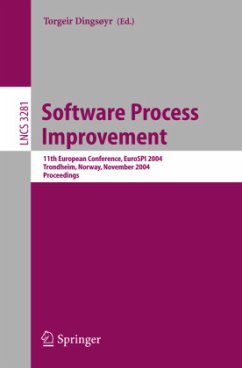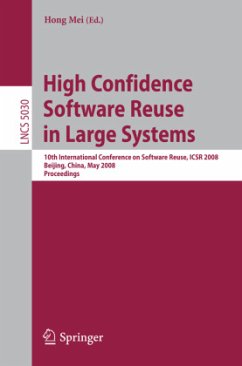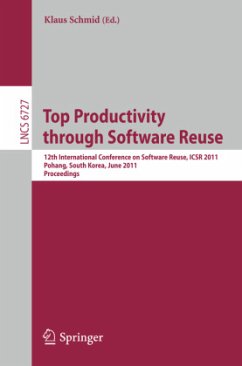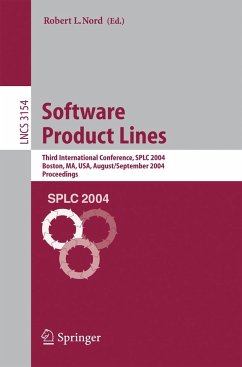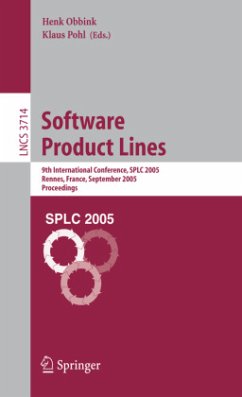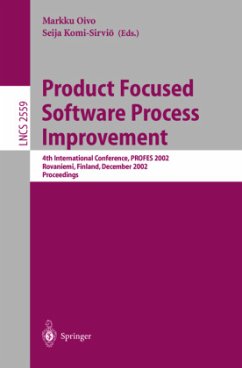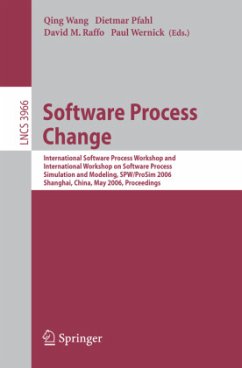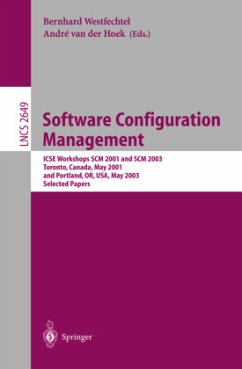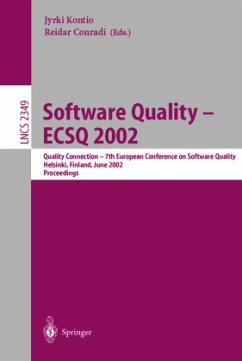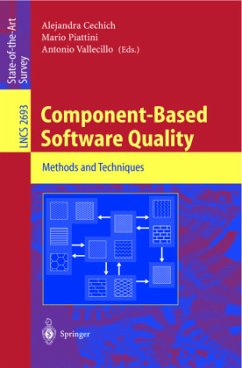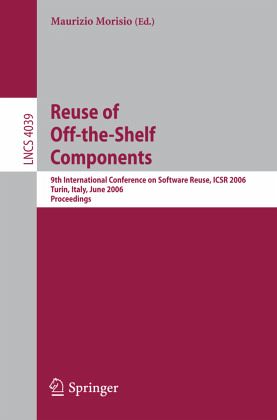
Reuse of Off-the-Shelf Components
9th International Conference on Software Reuse, ICSR 2006, Torino, Italy, June 12-15, 2006, Proceedings
Herausgegeben: Morisio, Maurizio

PAYBACK Punkte
20 °P sammeln!
Software reuse as an umbrella concept has been around for several decades. Over time, new techniques and approaches have been proposed to implement the concept, from libraries of reusable assets to product lines, to generative methods. These latter techniques are mostly used in intra-organizational reuse, and require considerable formal knowledge over the evolution of technology and required functionality in a domain over several years. On the other end of the spectrum, extra-organizational reuse is based on reuse of off-the-shelf (OTS) software (both open and closed source, acquired for free ...
Software reuse as an umbrella concept has been around for several decades. Over time, new techniques and approaches have been proposed to implement the concept, from libraries of reusable assets to product lines, to generative methods. These latter techniques are mostly used in intra-organizational reuse, and require considerable formal knowledge over the evolution of technology and required functionality in a domain over several years. On the other end of the spectrum, extra-organizational reuse is based on reuse of off-the-shelf (OTS) software (both open and closed source, acquired for free or for a fee). Here, a limited investment and immediate availability of the assets have widely spread the approach. On the other hand, the reusing organization has no control on the evolution of the functionality and assumptions of the asset. Even when the assets are open source, they are seldom modified. The theme for this ninth meeting is the reuse of off-the-shelf (OTS) components and related problems: _ Documentation of OTS components _ Processes to identify and select OTS components _ Integration and evolution problems _ Reliability and security of OTS components and legal issues _ Interaction with the developer community or with the vendor The proceedings you are holding cover these issues as well as development and use of product lines, variability modeling, aspect-based development, composition of components and services. June 2006 Maurizio Morisio Organization Organizing Committee General: Giancarlo Succi, Free University Bolzano/Bozen Program: Maurizio Morisio, Politecnico di Torino Workshops Peter Knauber, Mannheim University of Applied Sciences, Germany





